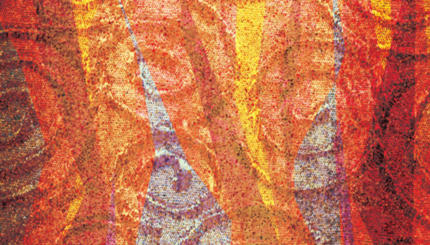Commentary on Parashat Nasso, Numbers 4:21-7:89
God told Moses to list the service each family shall undertake for the sake of the community and in honor of God. For the sons of Gershon, from 30 years old until 50 years old, their communal service shall be to carry all the tapestries and hangings of the Dwelling Place of The Testimony. Those sons involved in communal service are numbered as 2,630.
The sons of Merari, from 30 years old until 50 years old, shall be responsible for all the beams and bars and pillars and sockets for the Dwelling Place of The Testimony. They are numbered at 3,200.
The sons of the Kehathite, from 30 years old until 50 years old, are counted as 2,750. The sons of Levites, from thirty years old until fifty years old, are numbered at 8,580.
God then spoke to Moses saying: “Command the sons of Israel to send away from the camp every leper and everyone who has become unclean. Both male and female shall you send away, outside the camp.” And the sons of Israel did so.
With your help, My Jewish Learning can provide endless opportunities for learning, connection and discovery.
Then God told Moses to tell the Israelites: If a man or a woman commits a sin, any sin against man, any sin breaching trust against God, that person shall incur guilt. They must acknowledge to themselves the sin that they committed and they must then make restitution for the sin.
If a man’s wife goes astray sexually with another man other than her husband without being forced, then the husband shall bring his wife to the priest and make a meal offering of jealousy, and a meal offering of remembrance that recalls the wrongdoing. When the woman acknowledges her sin, she shall be made to drink bitter waters that shall make her belly swell and her thighs sag and she shall become a curse-word among her people. But if the woman is still pure, and has not forfeited her purity, she shall be blessed with offspring.
When anyone, man or woman, makes a resolve to take the vow of a Nazir, to elevate oneself temporarily to a position akin to that of a priest, then he or she must fulfill many obligations. They must not drink wine, nor anything prepared from the wine-producing grapevine. No razor shall come upon his head, nor shall they come in contact with the dead. All the days of his Nazirship, he is holy to God. If someone dies very suddenly beside him, he shall shave his head on the day he regains his purity. Sacrifices with the priest shall be made and offerings given to God to regain this purity.
God then tells Moses to have Aaron bless the sons of Israel by saying, “’May God bless you and keep you. May God illuminate the Almighty Countenance for you and favor you. May God lift up God’s Countenance toward you and establish peace for you.’ They shall place My Name upon the sons of Israel; and as for Me, I shall bless them.”
It came to pass even on the day when Moses has finished setting up the Dwelling Place and sanctified and anointed it that the heads of the tribes brought near offerings before God. These offerings include money, animals, flour, incense, gold and silver.
And when Moses went into the Tent of Appointed Meeting to speak with God, Moses heard the voice from above the cover that was upon the Ark of the Testimony, from between the two cherubim.
Parashat Nasso Discussion Questions:
1. What do you think God’s voice sounds like when it comes from the Ark of the Testimony? Can you hear God’s voice? What does God’s voice sound like to you?
2. Why do you think women were not counted among the tribes? If a counting was made today, do you think it would include women? Why or why not?
3. Both woman and men could become a Nazarite by making resolve to take the vow to follow specific, almost priestly, rules. What does this teach us about spiritual equality?
Reprinted with permission from Jewish Family & Life!


